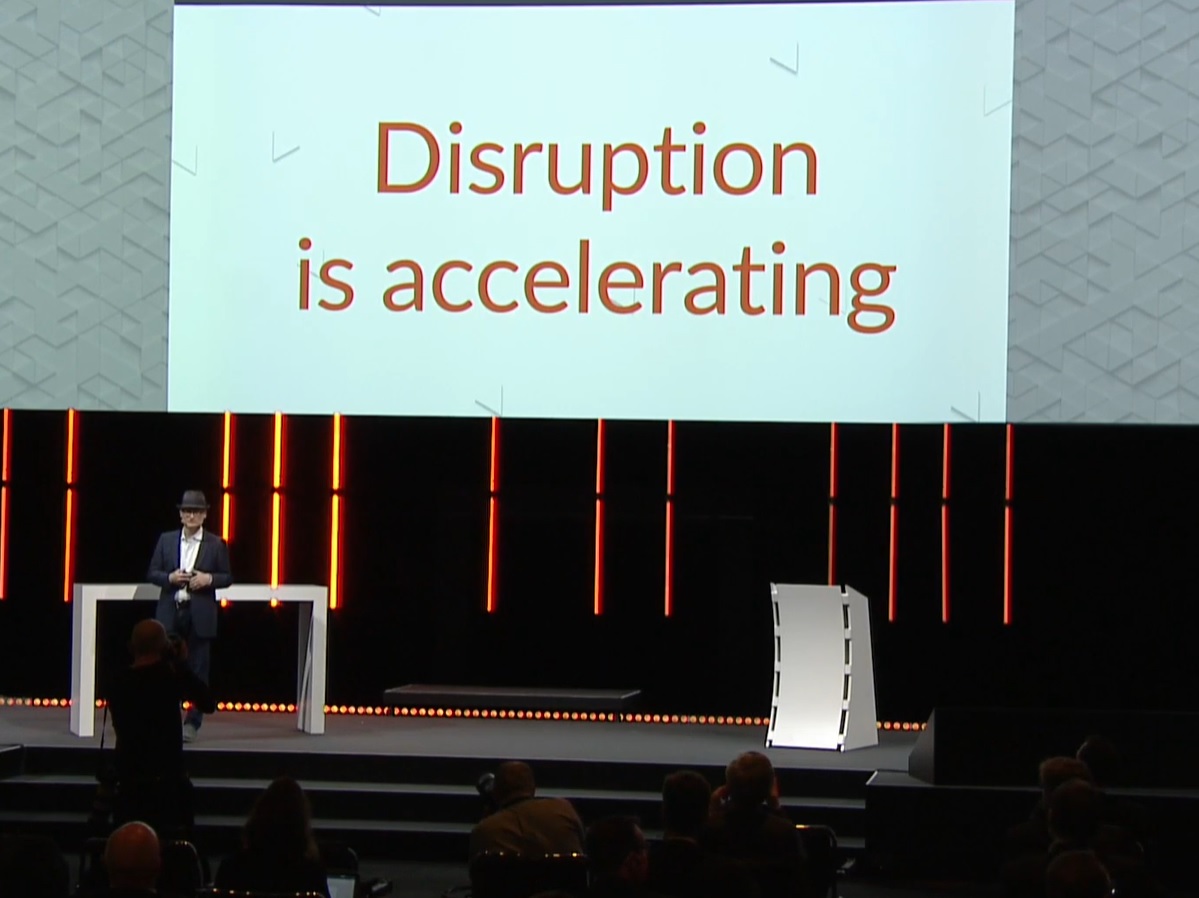GfK chief product officer, Sean O’Neill took to the stage at IFA in Berlin to discuss the acceleration of disruption during the COVID-19 pandemic and explain why businesses need to rethink their operational strategy amid the overwhelming market noise.
“Disruption is not going away,” he said.
“It is a constant and some business leaders say: ‘Well now things are opening up, last year’s playbook still works’ but it does not. Consumer behaviour has been forced to change and consumers are re-thinking long-held habits of how they shop and where they shop but we also must think about the opportunities in any point of disruption.
“We should also think about what disruption really means. It’s not a consumer term. No consumer ever said ‘I disrupted that taxi when I took an Uber’ – it’s not a concept for consumers. They just live their life the way they want. But disruption is a term for losers who are trying to explain how a competitor takes their customers away by serving them better.
“We need to make sure that we understand the shocks that will come in the market, what we are going to do to be vigilant and understand the next wave, how we might react, and how we are going to put our teams in a position where they can make better decisions.”

GfK market intelligence data has shown year-on-year growth by channel and it’s no surprise that traditional physical stores took a drop when lockdowns started to roll out across the world and consequently, online experienced significant growth. However, while pure play online retail grew 37%, bricks and mortar retailers’ online channel grew even more at 83% for the first 31 weeks of the year.
“This shows loyalty among consumers towards the retailers they might normally shop with in a physical place as they chose to shop with them more online,” O’Neill said.
“As physical stores started to re-open, we expected it to re-balance but some of these behaviours are here to stay. Online is going to be more important as a channel and digital media will influence more people.”
A recent GfK Consumer Pulse study showed that 60% of consumers will avoid going to shopping centres and outlets moving forward due to health and safety concerns, but according to O’Neill although this creates problems, it also creates opportunities for those who plan for it.
“Even the diehard in-store shoppers who don’t want to shop online were forced to rethink their habits and realise the ease and convenience of having products delivered to their home.
“Retailers and brands have to compensate for the loss of the showroom experience and the ability for a consumer to be able to go into a store to put on a pair of headphones or open an oven door because they have lost that opportunity. There are ways you can take advantage of this by bringing those in-store experiences into a digital environment through live chat or video conferencing to help consumers make a better purchase decision.
“Innovation and speed needs to not only come on your user experience but also how you make decisions and operate your business. You need every competitive edge possible to master the crisis so you are not just tossed about by the winds. We no longer have the luxury of time to think next quarter or next year and what changes are going to be made – you need weekly data and information that tells you what’s happening now because your competitors are doing it and if you’re not, you’re at a disadvantage.”

